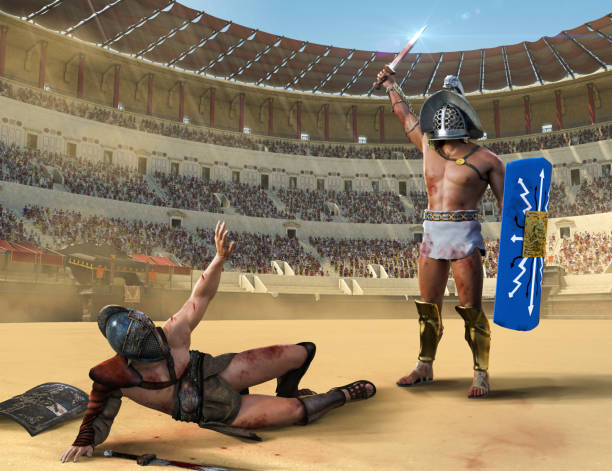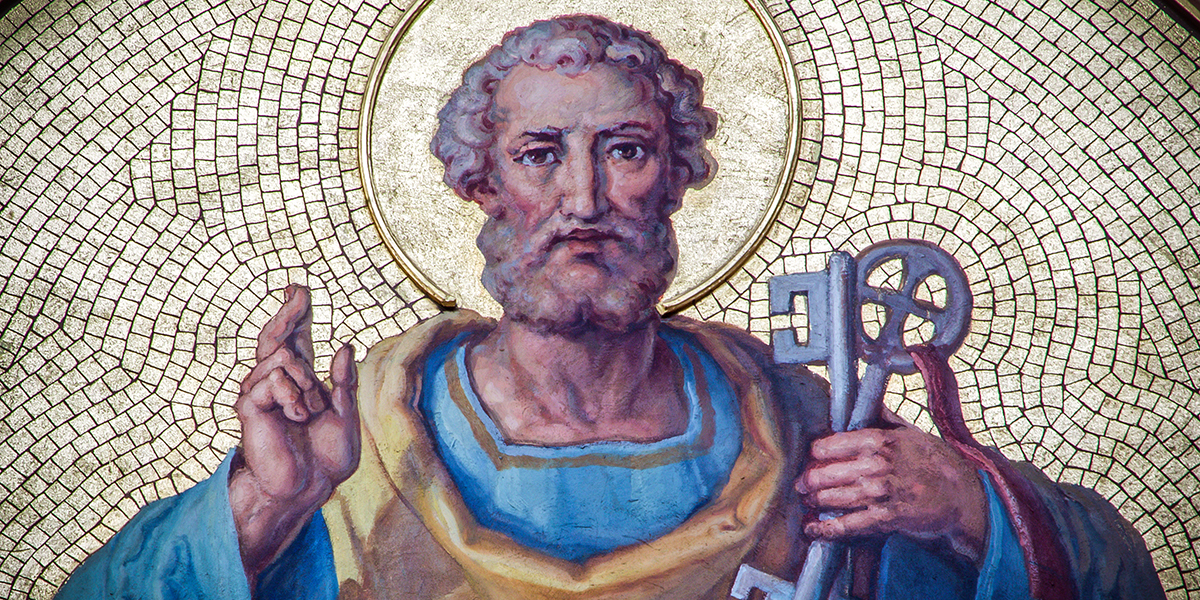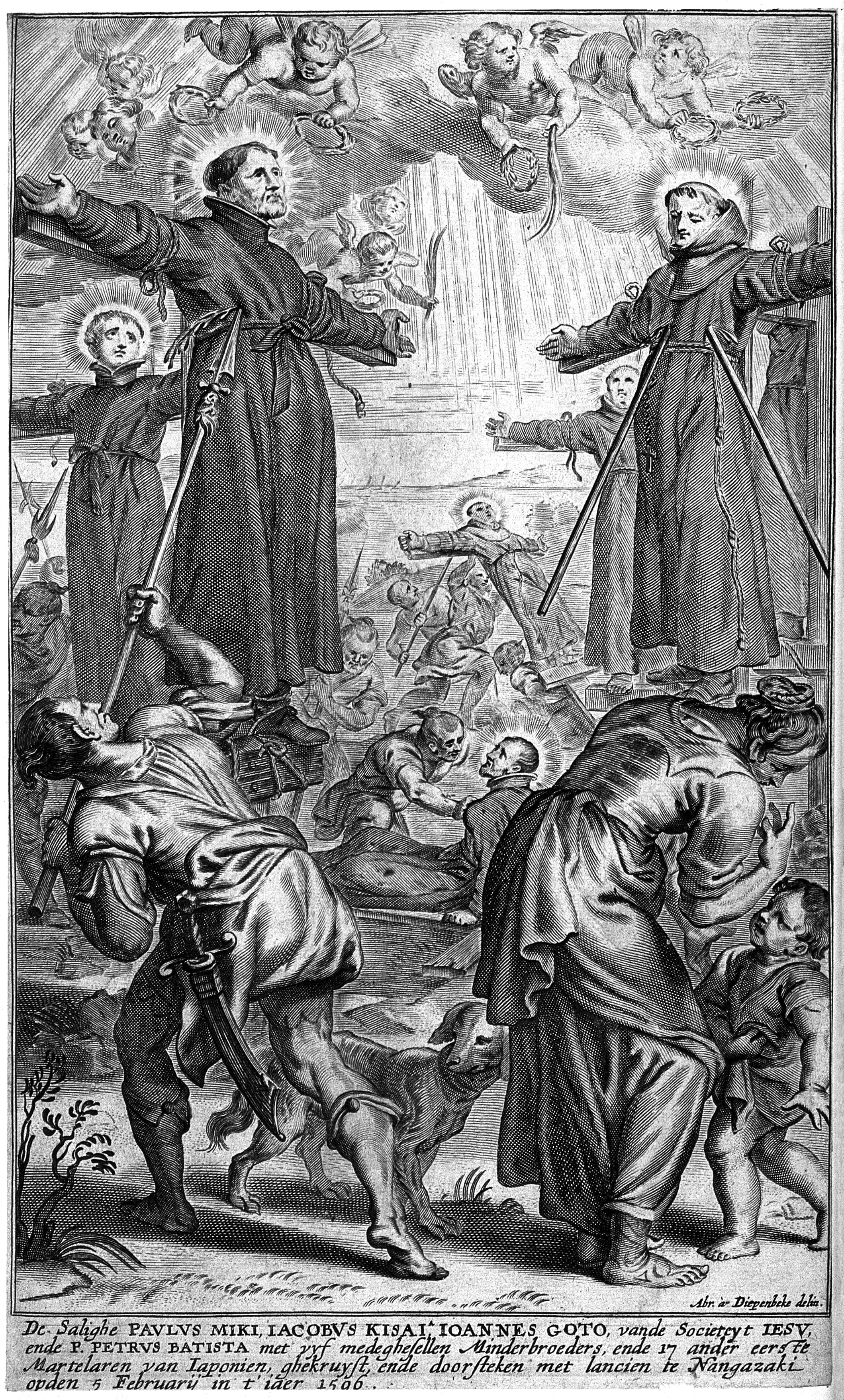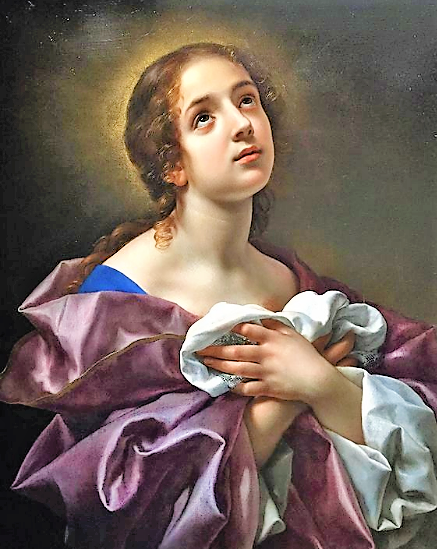
Today’s homily I will focus on the law of forgiveness also called the law of retaliation which was before the time of Jesus and how Jesus elevated the law of forgiveness. I will also speak about how we are to treat our body and the bodies of others, as temples of the Holy Spirit.
In the Gospel, Jesus teaches us to forgive. Before the time of Jesus, the Israelites were given what was called the law of retaliation. Jesus refers to this law in today’s Gospel, when He said, “An eye for an eye and a tooth for a tooth”. What does eye for an eye and tooth for a tooth mean?
Before the law of retaliation was given to the Israelites, when someone was injured or offended, they would return the injustice by vengeance, which was often time, worse than the original offense. But the law of retaliation prevented this.
Rather, for example, if you punched someone in the face and it caused him to go blind in one eye, he could legally hit you in your eye to cause you to go blind in one eye. Or if you were hit in the mouth, and a tooth broke off, you could hit him in the mouth and cause one tooth to break off. Without the law of retaliation, one would break more than one tooth or cause both eyes to go blind through returning an injury. Because of the law of retaliation, the dispute was supposed to be taken to a judge, who would be sure that no one would respond in a way that did more harm-- than the harm that was done to them.
In the New Testament, Jesus established an even greater advance with regard to forgiveness and mercy. He said, “If someone strikes you on your right cheek, turn the other to him as well”. “If someone presses you into service for one mile, go with him for two miles.”
The Christian is to submit to an injustice, rather than retaliating in a spirit of anger. The Christian should therefore, prepare to bear injuries for the glory and honor of God and the salvation of souls, rather than to return punishment to the one who hurt us.
Yet, this does not mean we should always patiently submit to personal injuries. For example, when Jesus was struck on the face by the servant of the high priest, Our Lord said, “If I have spoken wrongly, bear witness to the wrong, but I have spoken rightly, why do you strike me?’ In another words, because Jesus didn’t submit to the injustice, it prevented the servant from doing it again, and therefore, prevented the man from committing an additional sin.
Jesus wants to help us to understand--at times, it is better to virtuously, put up with injustice, and at other times---it is better to defend oneself, with the goal of helping to bring someone to repentance.
When I was in 6th grade, I had an 8th grade friend, who I will call Billy the bully. Billy is not his real name. In 6th grade, I weighed maybe 90 pounds. Two years older than I, Billy was tall, weighed 180 pounds and was very strong.
He used to pick me up over his head and threaten to throw me across the yard, but he never did. When we wrestled, he would pin me down for a long time, which greatly angered me. He would pick me up and squeeze me with a bear hug for about 10 minutes, which caused me to be angry at him because I felt helpless. He wanted to prove how strong he was. He would tighten his stomach muscles and tell me to hit him in the gut, as hard as I could. Out of obedience, I threw my hardest punch in his gut, but he would just laugh and tell me to do it again. He never once flinched.
One
day, when he wasn’t
looking,
I landed
the hardest punch
I
could, in
his very soft gut.
I was shocked. It
didn’t seem
to bother him at all. However, he
returned
the punch
in
my
gut
and I doubled over and fell to the ground. I couldn’t breathe. I
had the
wind knocked out
of me.
Once I was able to breathe, I went
home crying. Seeing
my
pain,
he kept apologizing,
“I’m sorry, I
shouldn’t have hit you that hard.”
I
was angry at him for a long time. I should have forgiven him, especially since he made it known he was sorry, but I didn't.
So now let’s remember, the Old testament rule, an eye for an eye and tooth for a tooth. According to the law of retaliation, he had a right to hit me, as hard as I hit him. But, we were just kids and goofing around, we had no idea about the law of retaliation.
However, based upon the new law, given by Jesus, it would have best if Billy turned the other cheek and perhaps warned me not hit him without his permission, and if I would do it again the future, he may retaliate. But as young kids, neither of us had that in mind and we were just playing around.
The
next question is, if someone gives
you permission to
hit him,
is
it okay? When I was in high school, I took a summer Karate boxing class. I was a very small young man, maybe weighed 120 at the
most. But I was absolutely vicious when boxing. In fact, I never lost
a match. No matter, the size of my opponent, all were afraid of me. I
had absolutely no empathy towards my
opponents.
I could care less if I caused them pain. It
was understood we each had each other’s permission to hit each
other because that was part of the game.
We wore different color belts (white, yellow, brown, the coach wore a black belt). We would get a certain number of points if we kicked or punched our opponent depending on if we hit them in the head or the torso, or if it was our foot or our boxing glove etc..
One day, I punched a kid and he flew back and landed on his back. The coach blew his whistle, got into my face and said, “What are you doing! Your not supposed to hit your opponent as hard as you can, your only supposed to make contact!”
It was at that moment, I realized there was something wrong with me, that I wanted to hit someone as hard as I could, and not care if it caused him pain. After that, I lost all matches. I was afraid to hit my opponents.
What was beneath, that rage, that viciousness, that lack of caring for another human being? I will give you a hint, in the first reading, it said, “Take no revenge and cherish no grudge against any of your people. You shall love your neighbor as yourself.”
It took me years to understand why I did, what I did. Beneath that rage, that viciousness, that lack of caring for others, was a grudge and a desire for revenge, that I didn’t even know I had. Guess, where it came from? It came from Billy, the bully. I saw Billy in my opponents. I wanted to get even with Billy. And saw my opponents as though they were him.
What I really needed to do was to forgive him. And once I forgave, the anger and desire for revenge went away. As it said in the first reading, “Take no revenge and cherish no grudge against any of your people. You shall love your neighbor as yourself.”
Is there anyone, you need to forgive? Its as simple, as saying, “Jesus, I forgive Billy”. Or I forgive my mother or my father, or my sister or my friend or the bully at school. With forgiveness comes peace in our heart and we should confess our unforgiveness or a grudge in confession too.
But, if you have someone’s permission, is it okay, to hit them, even if they might get injured?
In the second reading St. Paul said, “Brothers and sisters: Do you not know that you are the temple of God, and that the Spirit of God dwells in you? If one destroys God’s temple, God will destroy that person; for the temple of God, which you are, is holy.”
Why do you think St. Paul made this statement? What was going on during his time? There were large amphitheaters, where thousands of people would watch gladiators fight to death. Or gladiators would fight wild animals. The people would cheer when another gladiator struck his opponent severing his arm or if he loped off his head. Don’t you think it would be seriously sinful to take pleasure in watching another person get seriously wounded or to be killed?
Perhaps that is why St. Paul wanted to remind the people of Corinth, our body is temple of the Holy Spirit.
When I was in 7th grade, I went out for football. I was the smallest kid on the team and very skinny. One day, during practice, the coach told me to put my head down and hit the other kid as hard as I could in his waist. So when the ball was snapped, I ran across the line and hit other kid to make room for the running back. The other kid, whose name was Jeff, was knocked to the ground and the coach hollered, “That’s it, you did great. That’s exactly what you were supposed to do.” But Jeff, just laid there groaning. He couldn’t get up. His mother happened to be at the practice and helped him up. She took him to the hospital and Jeff had to have emergency surgery. When I hit him, his appendix ruptured. I felt awful. He could have died. Back then, I was not religious. I didn’t visit him in the hospital and didn’t even pray for him. I no longer liked football and didn’t want to play anymore. And Jeff ended up a big scar from surgery.
“Brothers and sisters: Do you not know that you are the temple of God, and that the Spirit of God dwells in you? If one destroys God’s temple, God will destroy that person; for the temple of God, which you are, is holy.”
Have
you ever watched UFC fighting? Years ago, before
I was a priest, I
used to watch it. Both men, have each other’s permission to hit and
kick and even to knock the other
out. But, does that make it right? Did you know when someone is
knocked out, it’s actually
a concussion
that
causes
swelling
of the brain? Broken
teeth, cuts on the face and hands, damage caused to the brain happens
at these fights.
Even if someone
allows another person to hurt
them, for the sake of seeing who is stronger, does that make it
right? It
seems to me, it would be seriously sinful to take pleasure in watching
another person get injured. It is also sinful to allow someone to physically injure us.
We should treat each other as a temple of the Holy Spirit. As Jesus said, “You shall love your neighbor as yourself.” So, if you don’t love yourself enough to care for your own body, is that a good thing? We need to love our self, we need to care for and protect our body. We are created in God’s image and likeness. As human beings we have dignity and should treat our self and others with dignity. That dignity comes from God, who dwells in each of us through baptism.
When I was pastor in Halstead, I had four altar servers who were severely injured in football. A 6th grade boy got a concussion. One altar server got a broken arm. A former altar server played college football and shattered a bone in his leg and tore ligaments. He had to wear a cast for almost 6 months and then needed physical therapy so he could walk normally. He walked with a limp for almost a year.
A junior in high school got a concussion. The brain injury cause him to have problems with his mind. His brain injury was bad, he became paranoid and tried to burn down is own home.
Often times, people with concussions are unable to control their emotions and have extreme anger outbursts. The doctor told his parents, if he gets another concussion, it could have severe consequences. The boy slowly got better and despite the doctors recommendation, they let him play again, because they said, “He likes to play.” Thanks be to God, he didn’t get another concussion and his paranoia went away. But, he was put in a very dangerous situation, that could have affected him for the rest of his life.
“Brothers and sisters: Do you not know that you are the temple of God, and that the Spirit of God dwells in you? If one destroys God’s temple, God will destroy that person; for the temple of God, which you are, is holy.”
We have an obligation to care for our self and our body. To care for our children, not only physically, but especially spiritually.
I believe we need to re-evaluate what is most important in our life. God must be first. Our children’s religious education must come before any school activity that prevents our children from growing in their faith. If we fail to do that, we are failing to help our children to get to heaven. It’s great to win a championship, but its infinitely greater to win glory in heaven. When it’s all said and done, only faith in Jesus helps us to get to heaven. Every other worldly pursuit, no matter how good is straw compared to our eternal life in heaven.
Listen to the words of St. Paul, “Do you not know that in a race all the runners compete, but only one receives the prize? So run so that you may attain it. Every athlete exercises self-control in all things. They do it to receive a perishable wreath, but we an imperishable. Well, I do not run aimlessly, I do not box as one beating the air; but I pommel my body and subdue it, lest after preaching to others I myself should be disqualified.” (1 Corinthians 9:24-27)
St. Paul pommeled his body by fasting, overcoming temptations, denying himself and striving for virtue.
Listen to the words of St. John Chrysostom. He said, “We bloodied no weapons, nor stood on the battle line, nor bore any wounds, nor saw any fighting, and yet we won the victory. All this was the glorious result of the Cross….The cross is our trophy raised against the demons, our sword against sin, and the sword Christ used to pierce the serpent. The cross is the Father’s will, the glory of the only-begotten, the joy of the spirit, the pride of angels, the guarantee of the Church, Paul’s boast, the bulwark of the saints, the light to the entire world.”
My friends, let us look to receive the crown of glory that never fades, by practicing our faith, learning our faith, making sure our children have the opportunity to learn their faith, and by sharing our faith with others. May, the Virgin Mary, whose body was a temple, when She carried Her unborn Infant Son, who is God, in Her womb, help us to love and care for our own temples and the temples of each other, with love.






